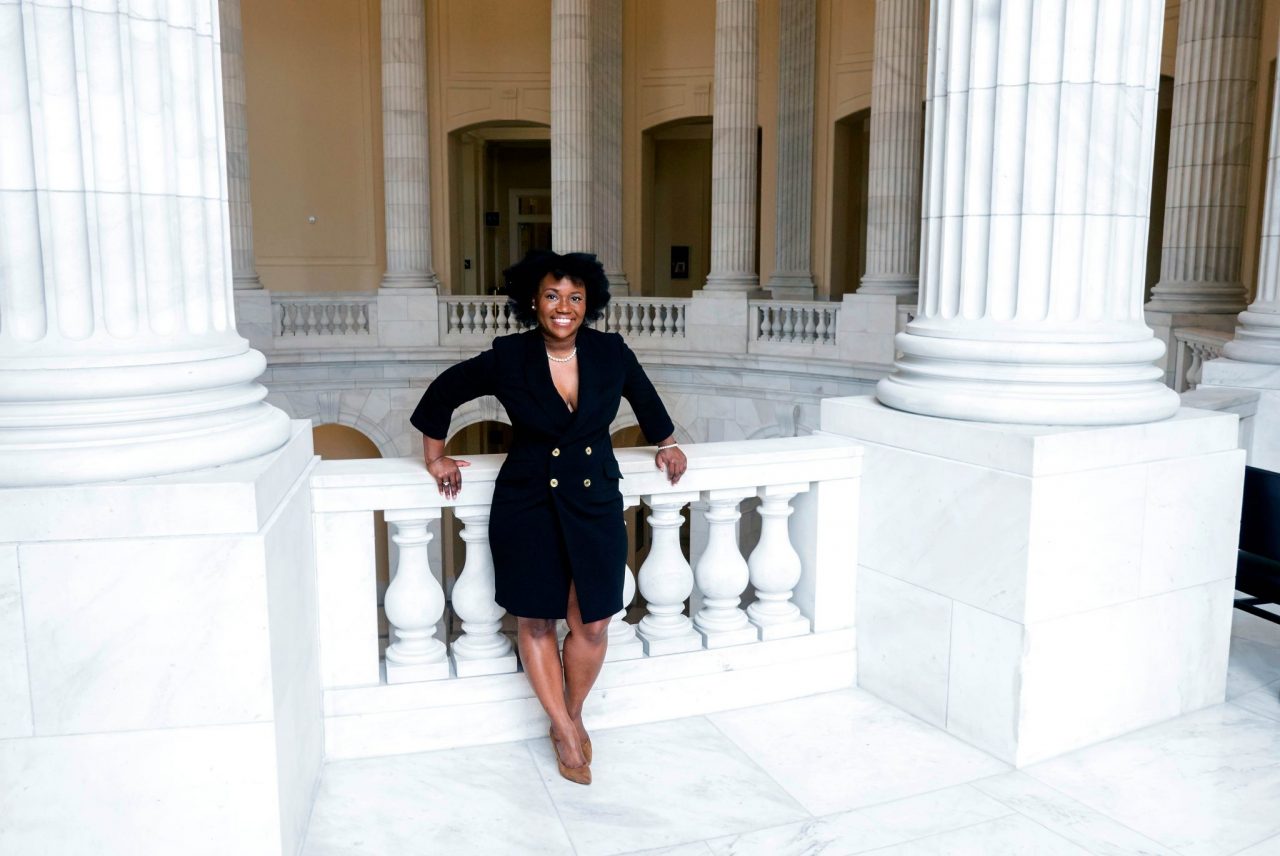What comes next after reaching your career goals? Today, Keenan Austin Reed serves as the Chief of Staff for Congressman Donald McEachin. To some, Reed’s path to a chief of staff role may seem unlikely.
With a business degree from Florida A&M, she got her start as a necktie buyer for Macy’s. Soon after, she was a top salesperson for pharmaceutical giant GlaxoSmithKline.
Years later, Reed pivoted and went to work on a congressional campaign and hasn’t looked back.
We asked Reed 8 questions on her journey, her new title, and what comes next.
Why did you want to become a chief of staff and how long have you had this goal?
“I knew I wanted to become a chief of staff since 2011–long before I was prepared for the role. It did not actually happen until 2018. I was a congressional staffer for about a year and realized what the chief of staff role meant to an office. That’s when I immediately recognized it was for me.”
“Helping a Member of Congress realize their vision, seeing the world through politics and policy, and leading a team– I loved it all.”
How did you prepare for your role? What skills did you have to acquire?
“I really wish I could speak to how I intentionally prepared for this role. But honestly, it’s the sum of many political roles I’ve held throughout my time in Washington.
“My first D.C. job was working for Congresswoman Wilson as her Senior Advisor. She believed in my abilities and trusted me to work in a number of capacities. This allowed me to learn all of the core components of a congressional office– legislative, press, administrative, and district operations.”
“I found my voice as a leader while serving as chief of staff to Councilmember David Grosso. David encouraged me to express my thoughts– even when they differed from his own. This made me brave in making decisions that would impact my team. Finally, as political director for the Hillary Clinton campaign, I was stretched well beyond what I believed to be my personal capacity. I had to work smarter and faster. My skin needed to be thicker. I learned to manage through extreme dynamics on the world’s biggest stage. All of these experiences prepared me to be a chief.”

What is an unexpected factor that helped you reach your goals?
“I have a secret weapon, my husband, Michael Reed. We are really blessed to both work for incredible members of Congress. There is no need to explain what it is I am experiencing– he gets it.”
“He is my coach, advisor, and overall support system. When I was inconsolable following the 2016 elections, he challenged me to lick my wounds and get to work helping Democrats take back the House.”
After meeting your title and salary goals, was it everything you thought it would be?
“Being chief is exactly what I thought it would be. No two days are the same and therefore your role is forever evolving. What did change is the accountability and responsibility I feel to the success of my boss and every single member of my staff.”
What does your workload look like at this level?
“As the chief, it’s really hard to quantify your workload because there are so many balls in the air. When you work for a freshman member of Congress, you are working more than normal to get your processes and operation set up.”
“Freshmen Members have a lot to prove to voters.”
You have a very diverse background– Macy’s/ Pharma. Does this feel like getting back on top?
“I admit I am little a different as far as staffers go. I have an MBA, which led to my first career as a men’s neckwear buyer at Macy’s and later lead me to a career in pharmaceutical sales. And now having worked for 2 Members of Congress, 3 Councilmembers, a presidential candidate, it would seem that my path was at best unlikely and on paper does not add up. However, I see the similarities in all of my roles.”
“It has always been very important for me to work for entities whose values I share. Whether that be a candidate or a company. And in all of my roles, I have been asked to manage resources to get the best outcome possible. And in that way, managing a congressional office of 22 staffers can be very similar to managing an $8 million neckwear business. I do not see my current role as a return to the top, but as a continuation of my journey.”
Being one of few professionals of color at your level, how can more women come to the table?
“While there are still too few black women on the Hill, the good news is our numbers are growing. I’m heartened by the recent ascension of many black women to senior roles on Capitol Hill. Particularly the recent additions of the first ever black women Senate chiefs to a democratic Senator, several in House leadership, and several more senior in roles in House committee leadership. More black women were elected to serve in the House of Representatives than ever before.”
“Since coming to the Hill it has been a passion of mine to build a pathway for more of us to make it on Capitol Hill. In my current capacity, I have a stronger platform to promote and vouch for other black women.”
“Last year, a few colleagues and I founded the Black Women’s Congressional Alliance (BWCA) to more formally reach these women. BWCA empowers, trains and promotes black women congressional staffers to ascend to higher ranks on Capitol Hill. Every time someone drops in my office for career advice and then calls me a few weeks later to tell me she got the job we prepared her for, I am absolutely fulfilled. It is the absolute best feeling.”
What’s your favorite thing about reaching this new level in your career?
“I love that with each interaction with a constituent, staffer, stakeholder, or Member of Congress I have an opportunity to shape the world. I share with anyone that is interested in a job as a Capitol Hill staffer that you will never be paid what you are worth in the private sector.”
“You have to be OK with that and you have to something unique that inspires you. Whether you are representing a community or have an issue you care deeply about, you have to have a reason to get up really early, stay well beyond 5 p.m., check your email on weekends, and still talk about your work in your free time.”
Featured photography by Robert Braggs III



